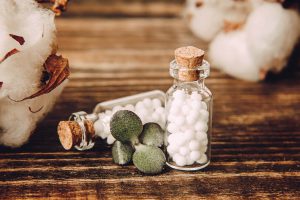
Joan O’Reilly LicICHM ISHom is a registered Classical Homoeopath. She graduated in July 2007 from the Irish College of Homoeopathic Medicine, Tralee after completing a 4-year course. Joan is also a member of the Irish Society of Homoeopaths. https://irishhomeopathy.ie/
About Homoeopathy

Homoeopathic remedies work by stimulating the body’s own healing power. This stimulus will assist your own system to clear itself of any symptoms of imbalance. The aim is to get you to a level of health so that eventually you will need less frequent treatment.
Consultations
Your first homoeopathic consultation lasts approximately 1 hour. You will be asked questions about your health and general well being, and your medical history. You will also be asked questions about your temperament, anxieties, stress, sleep, and appetite. Based on the information you have provided, you will be prescribed a homoeopathic remedy. About 4 weeks after you start your homoeopathic remedy, you will have a follow up consultation to assess how your treatment is progressing.

What the correct chosen remedy can do for your health
• Homoeopathic treatment focuses on you as an individual, and your specific symptoms.
• Homoeopathy addresses the underlying imbalances which cause disease, thereby providing a lasting resolution to health problems.
• Remedies are made from naturally occurring substances .
• Remedies stimulate the body’s own healing response therefore merely acting as a catalyst.
• This strengthens the body’s ability to react to illness and overcome symptoms without suppressive medication.
• Homoeopathic prescriptions recognise that people respond as individuals to illness thereby requiring a personalised prescription on each occasion.
• Homoeopathy is prescribed under the principle of minimum dose so as to merely stimulate the body and not produce side effects
• Professionally prescribed homoeopathic remedies can be used in conjunction with medication from other sources including prescription drugs.
